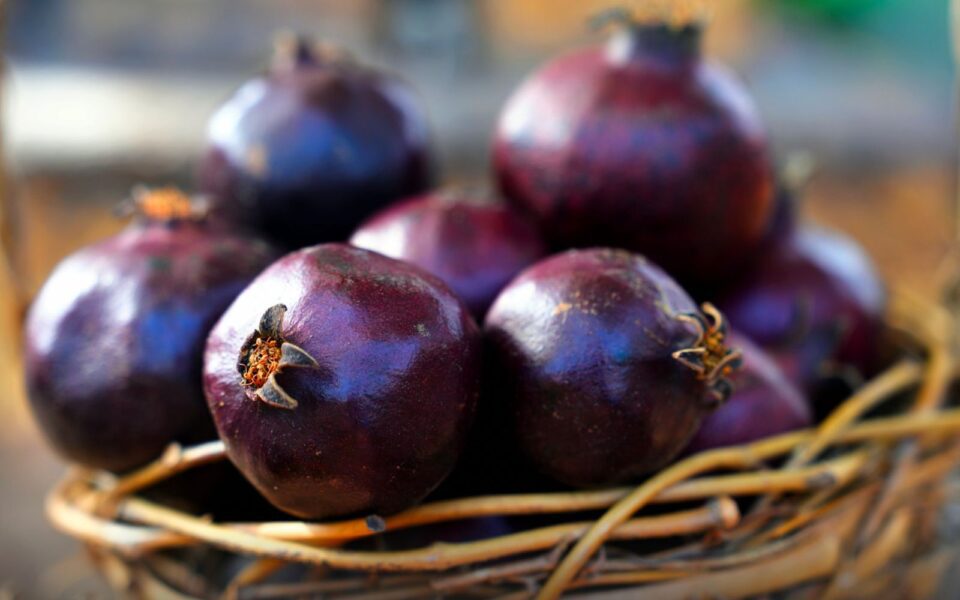In the Kurdish city of Mandali, located in Diyala Governorate near the Iraq-Iran border, expansive orchards flourish with a variety of fruits throughout the seasons, tended by dedicated Kurdish orchardists and distributed to neighboring towns and cities. Among these fruits, the black pomegranate stands out as a unique and exquisite delight.
Characterized by its thin, dark rind and deep red arils, the black pomegranate is medium-sized, typically weighing between 300 to 400 grams. Unlike more common pomegranate varieties, the black pomegranate’s distinct flavor—a complex blend of 75% bitterness and 25% sweetness—renders it unsuitable for commercial sale, making it a rare find in local markets. Additionally, this variety cannot be used to produce vinegar, but it holds significance in local medicine, being employed by residents to treat various ailments.
Mandali is home to over a dozen pomegranate varieties, including the “Anār Sīyah,” or black pomegranate, renowned for its medicinal properties. This ancient fruit has a rich history, tracing back to the establishment of Mandali itself, approximately 5,000 years ago.
Grown under the protective shade of other trees to shield it from the harsh summer sun and winter rains, the black pomegranate is considered native to Mandali. The conditions of this region contribute to the fruit’s unique characteristics, resulting in a lower yield compared to conventional pomegranate varieties. The black pomegranate not only represents a vital aspect of Mandali’s agricultural heritage but also serves as a testament to the area’s rich cultural history.

